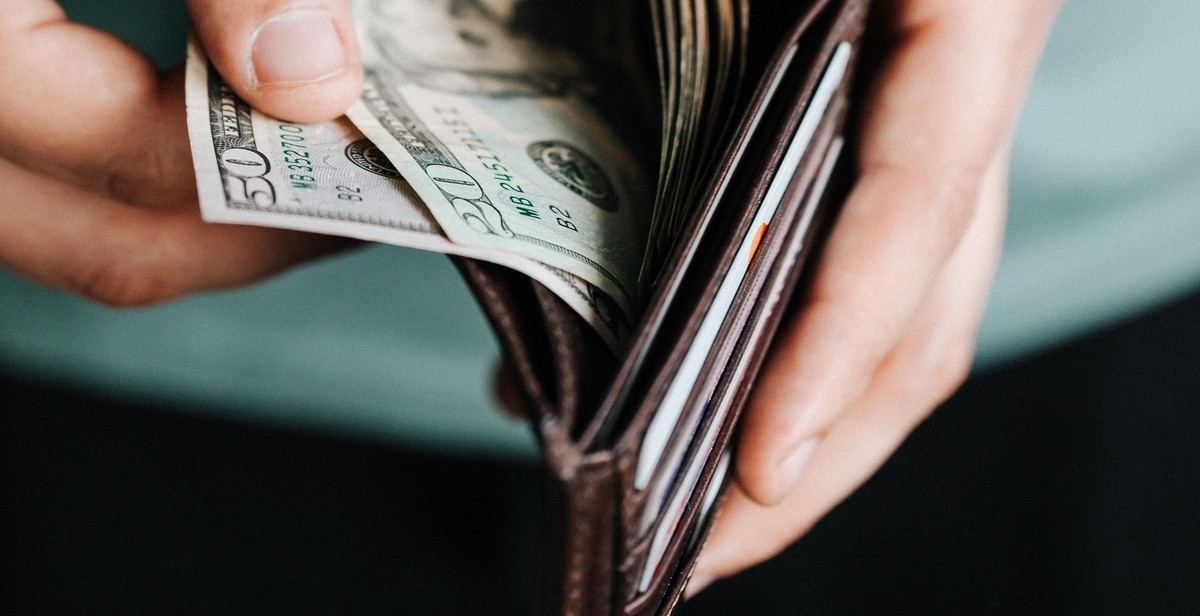How to Prepare for Economic Uncertainty: Strategies for Financial Resilience
Economic uncertainty is a reality that we all face at some point in our lives. It can be caused by various factors such as an economic recession, political instability, natural disasters, or even a pandemic. Whatever the cause, it can have a significant impact on our financial well-being. The good news is that there are strategies that you can implement to prepare for economic uncertainty and build financial resilience.
Why is it important to prepare for economic uncertainty?
Preparing for economic uncertainty is crucial because it can help you to weather the storm during tough times. It can give you peace of mind knowing that you have a plan in place to protect your finances. It can also help you to avoid making hasty financial decisions that could have long-term consequences.
Strategies for financial resilience
There are several strategies that you can implement to prepare for economic uncertainty and build financial resilience. These include:
- Creating an emergency fund
- Reducing debt
- Diversifying your income streams
- Investing in assets that hold their value
- Developing skills that are in demand
By implementing these strategies, you can position yourself to be better prepared for economic uncertainty and build financial resilience that will serve you well in the long run.

Assess Your Current Financial Situation
Before you can prepare for economic uncertainty, it’s important to assess your current financial situation. Here are four steps to get started:
Gather Your Financial Information
Collect all of your financial information, including bank statements, investment accounts, credit card statements, and any other relevant documents. This will give you a complete picture of your current financial situation.
Calculate Your Net Worth
Use your financial information to calculate your net worth. This is the total value of your assets minus your liabilities. Knowing your net worth will help you understand your overall financial health.
| Assets | Liabilities |
|---|---|
| Bank accounts | Credit card debt |
| Investment accounts | Student loans |
| Real estate | Mortgage |
| Other assets | Other liabilities |
| Total assets: $XXX,XXX | Total liabilities: $XXX,XXX |
| Net worth: $XXX,XXX | |
Review Your Monthly Expenses
Take a look at your monthly expenses and identify any areas where you can cut back. This will help you free up money to save for emergencies or invest for the future.
- Make a list of all your monthly expenses
- Categorize your expenses (e.g. housing, transportation, food, entertainment)
- Identify areas where you can cut back
Analyze Your Income Sources
Take a close look at your income sources and identify any areas where you can increase your earnings. This will help you build a stronger financial foundation and prepare for economic uncertainty.
- Make a list of all your income sources
- Categorize your income sources (e.g. salary, freelance work, investments)
- Identify areas where you can increase your earnings

Create a Budget and Stick to It
One of the most important steps to prepare for economic uncertainty is to create a budget and stick to it. By doing so, you can identify your needs and wants, set realistic goals, track your spending, and reduce your expenses.
Identify Your Needs and Wants
The first step in creating a budget is to identify your needs and wants. Needs are things that are essential for your survival, such as food, housing, and healthcare. Wants are things that are not essential but that you would like to have, such as entertainment and travel.
Set Realistic Goals
Once you have identified your needs and wants, you can set realistic goals for your budget. Start by setting a goal for your savings, and then allocate your remaining income to your expenses. Be sure to set realistic goals that you can achieve.
Track Your Spending
To stick to your budget, you need to track your spending. Keep a record of all your expenses, including small purchases such as coffee or snacks. This will help you identify areas where you can cut back on your spending.
Reduce Your Expenses
To reduce your expenses, look for ways to save on your regular bills, such as your utilities and groceries. You can also cut back on your discretionary spending by eating out less, shopping for bargains, and finding free or low-cost entertainment options.
| Needs | Wants |
|---|---|
| Food | Entertainment |
| Housing | Travel |
| Healthcare | Shopping |
In conclusion, creating a budget is a crucial step in preparing for economic uncertainty. By identifying your needs and wants, setting realistic goals, tracking your spending, and reducing your expenses, you can achieve financial resilience and be better prepared for any economic challenges that may come your way.

Build an Emergency Fund
One of the most important steps in preparing for economic uncertainty is building an emergency fund. This fund can help you weather unexpected financial challenges, such as a job loss or a medical emergency.
Determine How Much You Need
The first step in building an emergency fund is determining how much you need. Experts recommend having three to six months’ worth of living expenses saved up.
| Living Expenses | Monthly Cost |
|---|---|
| Housing | $1,200 |
| Food | $400 |
| Transportation | $300 |
| Utilities | $200 |
| Insurance | $150 |
| Other | $200 |
| Total | $2,450 |
Choose the Right Type of Account
Once you know how much you need to save, choose the right type of account to store your emergency fund. A high-yield savings account or a money market account are good options because they offer higher interest rates than a traditional savings account.
Automate Your Savings
To make sure you’re consistently saving for your emergency fund, automate your savings. Set up a direct deposit from your paycheck to your emergency fund account or set up automatic transfers from your checking account. This way, you won’t be tempted to skip a month or forget to save.

Reduce Your Debt
Reducing your debt is an essential step to building financial resilience. Here are some strategies to help you reduce your debt:
Prioritize Your Debts
Start by prioritizing your debts. Make a list of all your debts, including credit cards, loans, and mortgages. Then, prioritize them by interest rate, with the highest interest rate debts at the top of the list. Pay off the high-interest debts first, as they are costing you the most money.
Negotiate Your Interest Rates
If you have high-interest credit card debt, consider negotiating with your credit card company for a lower interest rate. You can often get a lower rate if you have a good payment history and a good credit score. Lowering your interest rate will help you pay off your debt faster and save you money in interest charges.
Consider Consolidation or Refinancing
If you have multiple debts with high-interest rates, consider consolidating them into one loan with a lower interest rate. You can do this by taking out a personal loan or using a balance transfer credit card. Alternatively, you can refinance your mortgage to include your other debts. This can help you reduce your monthly payments and save you money in interest charges.
By prioritizing your debts, negotiating your interest rates, and considering consolidation or refinancing, you can reduce your debt and build financial resilience.

Diversify Your Income Sources
One of the most important things you can do to prepare for economic uncertainty is to diversify your income sources. Having multiple streams of income can help you weather financial storms and provide a safety net if one source of income dries up.
Explore Freelance or Part-Time Work
One way to diversify your income is to explore freelance or part-time work. This can include anything from freelance writing or graphic design to part-time retail or food service jobs. Look for opportunities that align with your skills and interests, and be open to trying new things.
Benefits of Freelance or Part-Time Work:
- Extra income to supplement your main source of income
- Opportunities to learn new skills and gain experience
- Flexibility to work around your schedule
Invest in Rental Property or Stocks
Another way to diversify your income is to invest in rental property or stocks. While these options require more upfront investment, they can provide long-term passive income and help you build wealth over time.
Benefits of Rental Property or Stocks:
| Rental Property | Stocks |
|---|---|
| Passive income from rent | Potential for long-term growth |
| Tax benefits | Diversification across industries and companies |
| Opportunity to build equity | Low barrier to entry with online brokerage accounts |
Remember to do your research and seek professional advice before investing in rental property or stocks.

Invest in Your Future
One of the best ways to prepare for economic uncertainty is to invest in your future. By taking steps to secure your financial future, you can feel more confident and secure even in times of economic hardship. Here are two key strategies for investing in your future:
Start or Increase Your Retirement Contributions
If you haven’t already, now is the time to start contributing to a retirement account. This can be a 401(k), IRA, or other type of retirement account. By contributing to your retirement account, you can take advantage of compound interest and watch your savings grow over time. Even if you can only afford to contribute a small amount each month, it’s better than nothing. And if you’re already contributing to a retirement account, consider increasing your contributions if you can. This will help you build up your savings even faster and give you more financial security in the long run.
Invest in Education or Skills Training
Another way to invest in your future is to invest in yourself. This means taking steps to improve your education or skills training. By gaining new skills or knowledge, you can increase your earning potential and make yourself more valuable in the job market. This can help you weather economic uncertainty and give you more job security. Consider taking classes, attending workshops, or pursuing a degree or certification in a field that interests you. Not only will this help you financially, but it can also be personally fulfilling and rewarding.

Conclusion
Preparing for economic uncertainty can be a daunting task, but it is essential to ensure financial resilience. By implementing the strategies outlined in this article, you can begin to build a solid foundation for weathering any economic storm that may come your way.
Key takeaways
- Build an emergency fund to cover unexpected expenses.
- Reduce debt and live within your means.
- Invest in a diversified portfolio to mitigate risk.
- Consider alternative sources of income to supplement your primary source.
- Stay informed about the economy and adjust your strategy accordingly.
Remember, financial resilience is not built overnight. It requires discipline, patience, and a commitment to your long-term financial goals. However, by taking the steps outlined in this article, you can put yourself in a much stronger position to navigate economic uncertainty and achieve financial security.
Start preparing today
Don’t wait until it’s too late to start preparing for economic uncertainty. Start implementing these strategies today and take control of your financial future.
| About the author: | John Smith is a financial advisor with over 20 years of experience in the industry. He specializes in helping individuals and families prepare for economic uncertainty and achieve financial resilience. |
